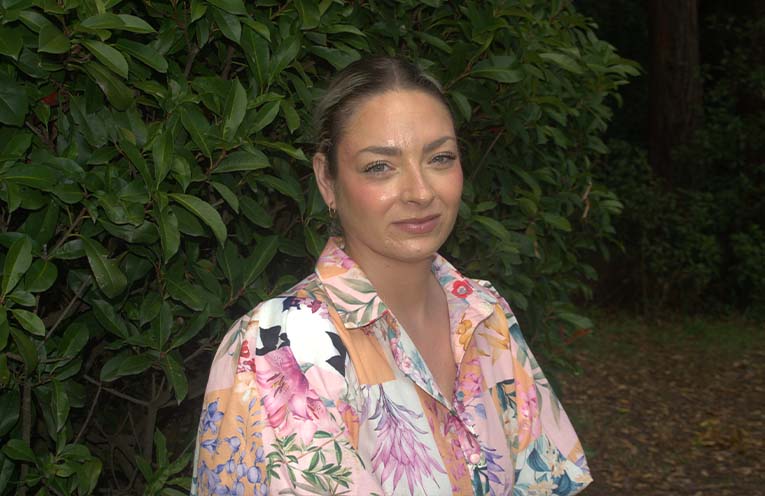ALMOST half of all Australians are diagnosed with a chronic health condition at some point in their lives.
While some of these are relatively manageable, with a number of treatments for conditions such as back pain or arthritis, others such as mental health concerns can present a more complex challenge for treatment.
 Advertise with News of The Area today.
Advertise with News of The Area today.It’s worth it for your business.
Message us.
Phone us – (02) 4981 8882.
Email us – media@newsofthearea.com.au
For approximately two million Australians, however, the challenges become far more extreme, as sufferers of rare diseases such as cancer or auto-immune conditions find their symptoms difficult to manage in the long term.
Jade Hunter belongs to a far more exclusive category of chronic sufferers in Australia, one which has the challenge not only of coping with debilitating symptoms, but also of finding medical professionals that are willing to help them.
“It’s one of those things that no one really thinks about until you or someone you know gets it,” Jade said of her condition.
“It’s such a discouraging experience though, because it’s so hard to find a doctor who will even listen.”
In around 2012 Jade, then a resident of Melbourne, visited Port Stephens with her father.
Upon her return home she fell ill with severe flu-like symptoms that did not ease over the course of weeks.
This was the beginning of an endless stream of visits to doctors, referrals to specialists and treatments that offered little to no relief.
In the meantime her constant exhaustion meant that her social life became non-existent, she was unable to continue working and her mental health began to decline.
“Life became so difficult, and the worst part was people just couldn’t understand what it was like for me.”
Jade was eventually diagnosed with Functional Neurological Symptom Disorder (FNDS) – a term used to describe chronic symptoms such as fatigue, nerve pain or cognitive impairment that may be traced to a decline in mental health.
While this is meant to convey that mental health problems have the potential to adversely affect brain chemistry and manifest chronic symptoms, Jade said people in her circle seemed to think the diagnosis meant that her condition was “all in her head”.
It was following the development of a troubling new symptom – the loss of sensation in one of her legs – that a friend suggested she explore Lyme disease as a possible explanation.
“It was something that explained every one of my symptoms.”
Lyme disease is caused by a bacterial infection that is commonly associated with tick bites.
This creates a serious problem for Australians, however, as the Department of Health does not accept that Australian species of ticks carry the specific bacteria that causes the disease, and as a result does not support any diagnoses of “locally acquired Lyme disease”.
The Department instead “recognises that a group of patients experience debilitating symptom complexes that some people attribute to ticks”.
“We call this DSCATT (Debilitating Symptom Complexes Attributed to Ticks).
Jade said she was fortunate to have access to a diagnosis or treatment options.
“I was lucky that at the point in time that when I was diagnosed there were doctors who were happy to diagnose and treat Lyme disease,” she said.
“Now, finding a doctor to help you is near impossible as they are being restricted and given suspensions.”
As the Department of Health does not recognise Lyme disease in Australia (unless acquired during overseas travel), diagnostic guidelines do not permit doctors to test for the disease.
In Jade’s case, after already having such a lengthy delay since the onset of her symptoms, the further difficulties in locating a doctor willing and able to treat her meant that she developed more complex symptoms that could no longer be managed by antibiotic treatment.
“At one point I was basically unable to walk at all,” she said.
“I was unable to hold conversations due to poor memory and poor cognitive ability; I was blacking out, experiencing POTS (postural orthostatic tachycardia syndrome); I was unable to eat; I had loss of feeling in my left side, nerve pain.
“Life was a nightmare during those years.”
A permanent relocation to Port Stephens after Jade was married led to a new hope for treatment, as she found a willing doctor in Newcastle with experience in treating conditions such as hers, and supportive members of the community who were willing to pitch in.
Despite the severity of her condition her extensive treatments and medications could not be covered by the Pharmaceutical Benefits Scheme, and there was no possibility of private health coverage for a condition not recognised by the government.
“I was incredibly lucky that a local lady heard of my story and held a fundraiser for my overseas travel expenses, which led to the local Lions Club hearing my story and raising an amazing amount of money to help cover the costs of my Malaysia trip.
“Without the help of these generous people and my family this trip would not have been possible, and I hate to think of where I would be now without that treatment.”
The trip and treatment she speaks of is a specialised and, again, controversial treatment not available in Australia called whole-body hyperthermia treatment, or thermal therapy.
It involves the raising of the body’s temperature several degrees for a sustained period of time while an antibiotic IV is slowly administered.
Jade said these treatments have restored her quality of life.
“I am so lucky to be where I am today compared to where I was at my worst.
“I have been so lucky to have been able to have my son.
“Another one of my proud moments is getting into a law degree and becoming a second year law and criminology student.
“But these amazing achievements don’t come without constant anxiety at a relapse.
“I want to raise awareness that Lyme disease is such an insidious disease that does not get the exposure it deserves by the media, general public or medical professionals.”
By Lindsay HALL

